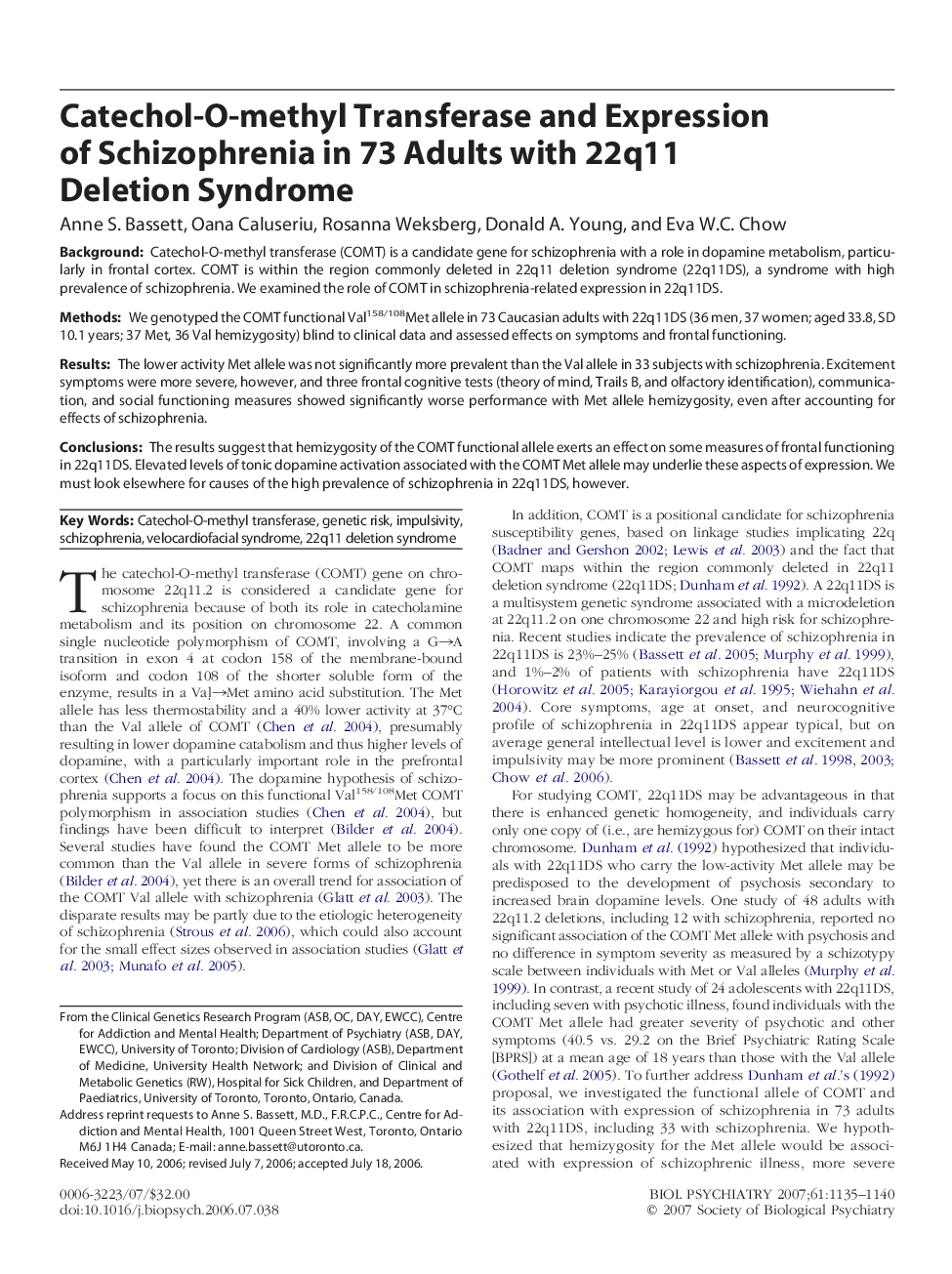| Article ID | Journal | Published Year | Pages | File Type |
|---|---|---|---|---|
| 4181031 | Biological Psychiatry | 2007 | 6 Pages |
BackgroundCatechol-O-methyl transferase (COMT) is a candidate gene for schizophrenia with a role in dopamine metabolism, particularly in frontal cortex. COMT is within the region commonly deleted in 22q11 deletion syndrome (22q11DS), a syndrome with high prevalence of schizophrenia. We examined the role of COMT in schizophrenia-related expression in 22q11DS.MethodsWe genotyped the COMT functional Val158/108Met allele in 73 Caucasian adults with 22q11DS (36 men, 37 women; aged 33.8, SD 10.1 years; 37 Met, 36 Val hemizygosity) blind to clinical data and assessed effects on symptoms and frontal functioning.ResultsThe lower activity Met allele was not significantly more prevalent than the Val allele in 33 subjects with schizophrenia. Excitement symptoms were more severe, however, and three frontal cognitive tests (theory of mind, Trails B, and olfactory identification), communication, and social functioning measures showed significantly worse performance with Met allele hemizygosity, even after accounting for effects of schizophrenia.ConclusionsThe results suggest that hemizygosity of the COMT functional allele exerts an effect on some measures of frontal functioning in 22q11DS. Elevated levels of tonic dopamine activation associated with the COMT Met allele may underlie these aspects of expression. We must look elsewhere for causes of the high prevalence of schizophrenia in 22q11DS, however.
